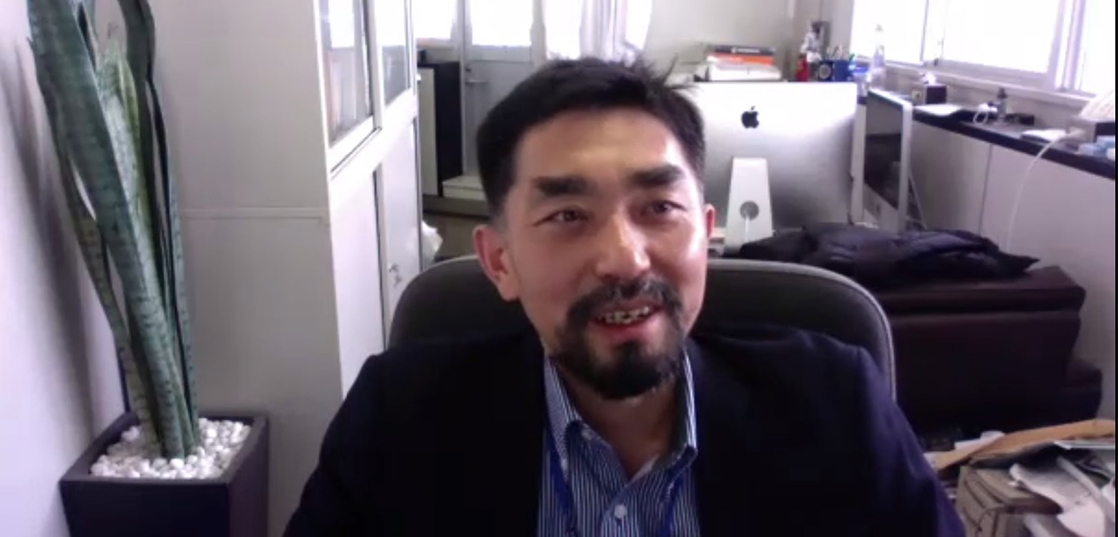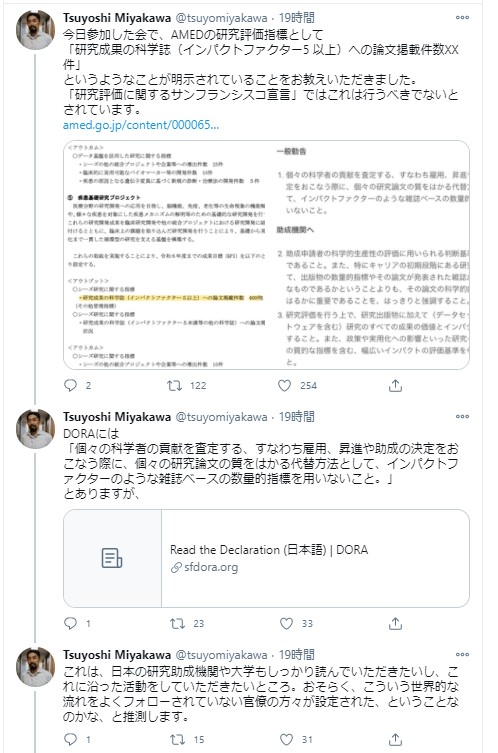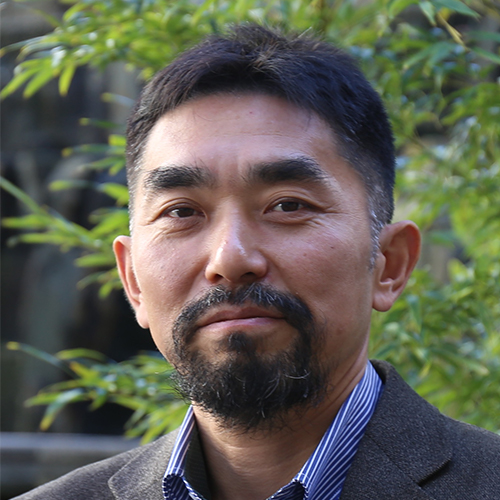Coronavirus infections are still rampant around the world. In Japan as well, the number of infected people has increased sharply since November last year, and many people are worried. Under these circumstances, Professor Tsuyoshi Miyakawa of the Institute of Comprehensive Medicine, Fujita Medical University says, "It is now that we should change the way we view information and use it as an opportunity for the entire nation to think about the relationship between society and science."
Professor Miyagawa became a hot topic in April last year when he announced the research result that "the number of people infected with the new coronavirus infection and the number of deaths are statistically smaller in countries where BCG vaccine is regularly inoculated." Our a group company, to provide genetic testing and analysis services Co., Ltd. Jean quest has been active as adviser.
In the with corona era, what kind of attitude should we take to interact with information and make choices? I asked Professor Miyagawa.
"BCG vaccine and new coronavirus infection" that clinical research has begun all over the world
Please tell us about Professor Miyagawa's research field.
I am currently enrolled at Fujita Medical University, but in fact, I am from the Faculty of Letters, and my original specialty is psychology. When I was in graduate school, I was impressed by the groundbreaking research and technology of "gene targeting" that modifies genes with the genome, so I have been studying genes and the brain in addition to the "mind".

What does research on coronavirus infections have to do with psychology?
What I investigated is the relationship between the number of BCG vaccines (commonly known as vaccines that prevent tuberculosis) by country and the number of people who are positive for coronavirus infection. The reason was that there was a blogger who wrote on the Internet that "countries that regularly inoculate BCG have a small number of infected people." In that case, it would be interesting to collect statistics properly, so when I talked to an assistant professor who is familiar with statistics in the same laboratory, he became interested and decided to analyze the statistics. Psychology has historically emphasized statistics, and many researchers are familiar with statistics.
As a result, it was found that the longer the period of regular vaccination of the BCG vaccine to the people, the lower the number of deaths due to the new coronavirus infection. However, these studies are called "regional correlation studies" and merely show the correlation between facts. In reality, many factors such as life expectancy, aging rate, population density, obesity rate, temperature / humidity, and smoking rate by country are involved. We have published a preprint that summarizes the statistical differences between countries that receive regular BCG vaccines and those that do not, even considering a number of factors called "mixing factors." Announced.
この研究結果は朝日新聞や東京新聞などの大手メディアにも取り上げられ、話題となりました。研究者の間での反応はいかがですか?
When I posted to an epidemiology journal in Japan, I got 6 reviewers. When publishing a treatise, we ask an outside expert to review it, but usually the number of reviewers is at most two or three. I think that 6 people represent the high degree of attention of this paper. We are also peer-reviewing the treatise and publishing it in an internet archive, after which our treatise has been cited 32 times. Was doing the analysis to respond to peer review, one after another in a magazine that authority is almost the paper of the same method and the conclusion announcement has been. Since the content was confirmed, I thought it was not necessary to make ours a peer-reviewed treatise.
Regarding the BCG vaccine, clinical research on Honmaru is being conducted all over the world, and it is cited as the basis for conducting that research, so I feel that we have fulfilled a certain mission.
The Japanese have been promoting mass inoculation of the BCG vaccine. Even now, it is supposed to be vaccinated with BCG vaccine by the age of 1 year. Is this a lower risk of aggravation of coronavirus infection than in other countries?
At present, it is only a hypothetical level, and it cannot be the only cause, but considering other basic research on the non-specific effects of BCG, I think that there is a considerable possibility. I will.
The risk lies in "speaking" and "speaking out"
In Japan, the spread of infection, also known as the "third wave," has continued since November last year. What should I be aware of again to prevent infection?
I'm not a direct expert on infectious diseases, but what I find particularly important in the knowledge of the new coronavirus infection that I have accumulated to date is that "the infection has spread mainly in restaurants. It is. "A paper on this research has been published in the British academic journal "Nature," and it is said that restaurants are four times more likely to be infected than cafes and gyms. Compared to outdoor and indoor, the indoor risk is overwhelmingly high, and the restaurant is also high risk indoors. This is probably because droplet infection is the main transmission route for new coronavirus infections.
So the problem is that there is a high risk of "speaking" and "speaking". Studies have shown that the risks seem to vary considerably depending on whether you speak quietly or loudly. The year-end and New Year holidays are also the seasons for alcoholic year-end parties and New Year's parties, but these should be considered the most risky situations.

What do you think of the "crowded trains" and "large-scale events" that have often been pointed out since the beginning of the spread of the infection?
As far as I know, there are no examples of clusters occurring on crowded trains so far. Also, for large-scale events, there are almost no outdoor clusters. Infections at barbecue venues have been reported, but this may be due to the opportunity to speak in close proximity without a mask.
Many people have gathered in professional baseball and J-League games, but no clusters have been confirmed so far. There is a J-League Nagoya Grampus home near my home, and I often watch the game, but now I have at least one seat open and the audience is careful not to talk. Yeah. The stand is so quiet that you can hear the screams on the players' pitches. The risk of infection seems to be fairly low in situations where you do not wear a mask and speak outdoors.
With that in mind, if you avoid the situation of "speaking at a short distance without a mask", the infection can be prevented at a considerable rate.
You can understand the certainty of information just by distinguishing between "facts and inferences".
Various information is flying around on the Internet related to the new coronavirus infection. I think the reality is that some of them are doubtful of accuracy. What do you need to get the right information right?
What is the fact and what is not. It's difficult to tell this, isn't it?
When we researchers come into contact with a new theory that is being whispered online, we first look at the underlying treatise with suspicion. Even if it is outside the field of specialization, you can see a certain degree of certainty by looking at the number of survey targets. However, the general public may not have this feeling. I think this is an essential issue in the relationship between society and science.
Regarding the new coronavirus infection, there are many cases where opinions are disputed even among experts, as seen in the discussion about the ideal way of PCR testing. Even the effect of the mask was initially denied by that WHO (World Health Organization). If you don't have the skills to check the treatise yourself and it's difficult to rely on the opinions of experts, you'll be in trouble.
As you pointed out, I think that it is common to believe in information that is flowing on the Internet without checking the underlying treatises. What should I be aware of in order to have a scientific perspective?
First of all, it is important to confirm "what is the fact". If there is a topic that interests me, I confirm the existence of the underlying treatise, paraphrase or translate the content so that it can be easily understood by the general public, and post it on Twitter. You may refer to the information from such researchers.
Researchers often make mistakes, so it's a good idea to look at the statements of as many researchers as possible. Is there a treatise that is the basis of the discourse that is being talked about, or is it just a way of thinking or reasoning? This distinction is as big as possible.

Tweet sent by Professor Miyagawa
Recently, it has been gradually carried out, but I would like you to clarify the source papers etc. in various media reports and SNS transmissions. The "Science Communication Guidelines" of the Japan Neuroscience Society recommends that you indicate the source as much as possible in the scientific press. The more such habits spread, the easier it will be to see the line between facts and reasoning.
I also think that people like us who have some skill in seeing scientific facts must take the lead in improving this situation. Now that we are shaken by the new coronavirus infection, we should use it as an opportunity for the entire nation to think about the relationship between society and science.
As I mentioned earlier, it is common to see researchers disagreeing on the same subject. Do you have any hints for identifying "reliable experts"?
In terms of checking the achievements of researchers, you can find out to some extent by searching for "researchmap" or "Google Scholar". Proven researchers have published a reasonable number of treatises. That's not all, but it can be an indicator.
Then, see if the person speaking as an expert clearly distinguishes between "facts so far" and "hypotheses and inferences from here". For example, there are few proper researchers who say "absolutely OO" or who just say it.
It may seem a bit absurd, but this is true even if the theme is "aliens". If you are really studying the universe, you will think that "aliens may exist as a hypothesis." This is because there is no evidence that it can be said that there are absolutely no aliens.
I think that if we take this perspective into the facts and follow the remarks of experts, we will be able to improve our sensitivity to properly capture correct information.
Now that various information is exchanged all over the world and information is overloaded, we are required to have the ability to determine whether the information is a fact or just a way of thinking or a hypothesis.
The habit of confirming sources and evidence permeates not only research but also the general public, leading to the correct understanding of correct information.
Sentence / Shinsuke Tada

(Professor, System Medical Science, Institute of Comprehensive Medical Science, Fujita Medical University)
Graduated from the Faculty of Letters, University of Tokyo in 1993.
Completed the Graduate School of Humanities and Social Sciences in 1997, Ph.D. (Psychology).
Since 2007, he has been a professor of system medical science at the Institute of Comprehensive Medical Sciences, Fujita Medical University.
Through analysis of genetically modified mice, genes, brain,
Study behavioral relationships.
He is also an advisor to GeneQuest and an ethics judge.
Professor Miyagawa Twitter account: @tsuyomiyakawa

